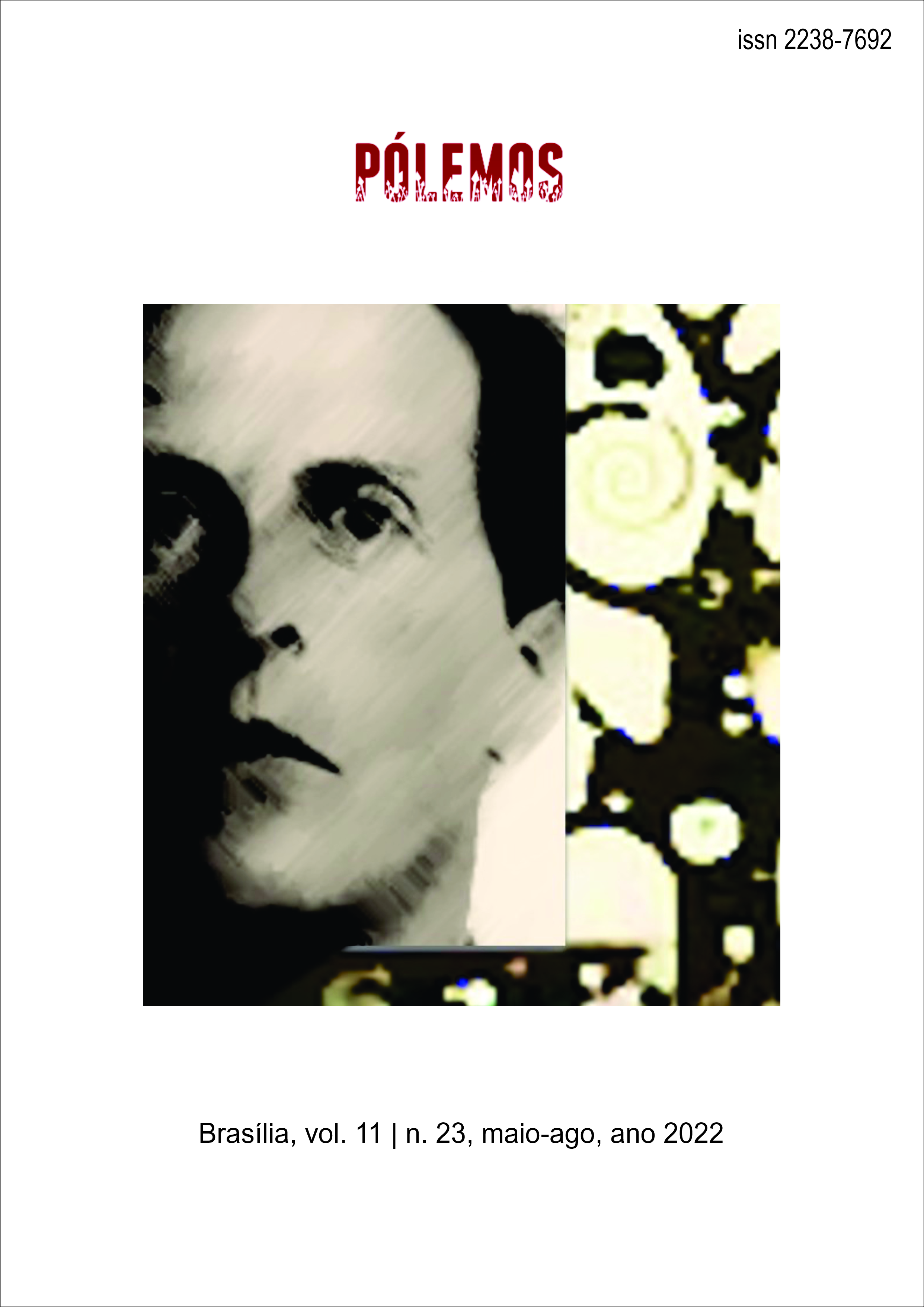HISTORY AS AN ABSURDIST COMEDY
the foundations of anti-historicism in Arthur Schopenhauerv
DOI:
https://doi.org/10.26512/pl.v11i23.44541Keywords:
History. Philosophy of history. Schopenhauer. Absurd. Anti-historicism.Abstract
The possibility of admitting a historical determination of human acts that develops in the course of history, exposing a natural purpose of human evolution, is the main issue addressed in this text. In contrast to the historicist thinking of the time and driven by the optimistic German idealism of his time (Kant and Hegel), Arthur Schopenhauer's (1788-1860) theses in two volumes of The world as will and representation (1819/1859) are explained here. Such works, as well as some critics, were considered from an analytical reading perspective in order to objectively understand the concepts discussed in them. According to Schopenhauer, history is nothing more than a possibility of self-awareness for humanity and is not capable of revealing the self of the world or modifying its main attribute, human morality. This text therefore intends to expose anti-historicism based on the four foundations inherent to his philosophical organism that are present in the basic structure of his masterpiece, which are: the theory of knowledge, ontology, aesthetics and ethics. Thus, despite the fact that history has its value, it is not capable of finding a common thread that leads it to the asserted progress of humanity. The only possible attitude towards the events of universal history is resignation to the absurd and the complete lack of meaning in life. In it, only an absurdist comedy is staged.
Downloads
References
ALONSO, Juan David Mateu. La crítica schopenhaueriana de la historia. Schopenhaueriana (Revista española de estudios sobre Schopenhauer), n. 2, 2017, pp. 9-26.
BARBOZA, Jair. Schopenhauer. Rio de Janeiro: Jorge Zahar, 2003.
CARDOSO, Renato César. A ideia de justiça em Schopenhauer. Belo Horizonte: Argumentum, 2008.
GARCÍA, Roger A. Pérez. Historia y conocimiento em la filosofia de Schopenhauer. Schopenhaueriana (Revista española de estudios sobre Schopenhauer), n. 2, 2017, pp. 43-58.
GOTTFRIED, Paul. Arthur Schopenhauer as a critic of history. Journal of the history of ideas, vol. 36, n. 2, apr-jun, 1975, pp. 331-338. DOI: https://doi.org/10.2307/2708931.
HEGEL, G. Filosofia da história. Tradução Maria Rodrigues e Hans Harden. 2. ed. Brasília: UNB, 2008.
HEGEL, G. Lecciones sobre la filosofia de La historia universal. Madrid: Revista de Occidente, 1953.
HERRERA, Fernando Martínez. Entorno a la «devaluación» de la historia en Schopenhauer. Schopenhaueriana (Revista española de estudios sobre Schopenhauer), n. 2, 2017, pp. 205-240.
HORKHEIMER, M. La actualidad de Schopenhauer. In: Adorno, T.; HORKHEIMER, M. Sociologica. Tradução Victor Sánchez de Zavala. Madrid: Taurus, 1971.
KANT, I. Ideia de uma história universal com um propósito cosmopolita. Tradução Artur Morão. In: KANT, I. A paz perpétua e outros opúsculos. Lisboa: Edições 70, 2004.
MONTEIRO, Fernando J. S. 10 lições sobre Schopenhauer. Petrópolis: Vozes, 2011.
PHILONENKO, Alexis. Schopenhauer: una filosofía de la tragedia. Anthropos: Barcelona, 1989, pp. 234.
SANTOS, Katia Cilene da Silva. A história e a determinação das ações na filosofia de Schopenhauer. Kínesis, vol. II, n. 03, abril-2010, pp. 135-143. DOI: https://doi.org/10.36311/1984-8900.2010.v2n03.4341.
SCHOPENHAUER, A. O mundo como vontade e como representação. Tomo I. 2. ed. Tradução Jair Barboza. São Paulo: UNESP, 2015a.
SCHOPENHAUER, A. O mundo como vontade e como representação. Tomo II. Tradução Jair Barboza. São Paulo: UNESP, 2015b.
SCHOPENHAUER, A. Sobre a quadrúplice raiz do princípio de razão suficiente. Tradução Oswaldo Giacoia Junior e Gabriel Valadão Silva. Campinas: UNICAMP, 2019.
SCHOPENHAUER, A. In.: MANN, Thomas (apr). O pensamento vivo de Schopenhauer. São Paulo: Martins, s.d.
SILVA, A. F. Os conceitos de vontade e representação no entendimento do mundo segundo Arthur Schopenhauer. 2011. 75 f. Dissertação (Mestrado em Filosofia) – Universidade Federal da Paraíba, João Pessoa, 2011.
Downloads
Published
Issue
Section
License
Copyright (c) 2022 PÓLEMOS – Revista de Estudantes de Filosofia da Universidade de Brasília

This work is licensed under a Creative Commons Attribution-NonCommercial-NoDerivatives 4.0 International License.
Todos os trabalhos que forem aceitos para publicação, após o devido processo avaliativo, serão publicados sob uma licença Creative Commons, na modalidade Attribution-NonCommercial-NoDerivatives 4.0 International Public License (CC BY-NC-ND 4.0). Esta licença permite que qualquer pessoa copie e distribua a obra total e derivadas criadas a partir dela, desde que seja dado crédito (atribuição) ao autor / Ã autora / aos autores / às autoras.


